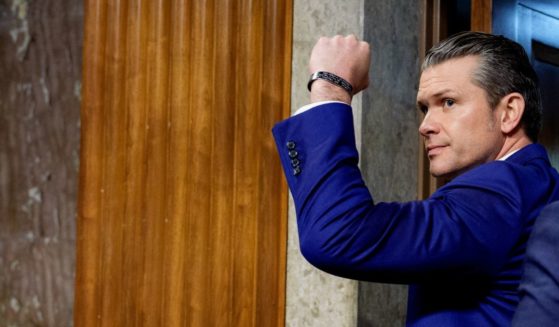Christopher Steele’s Deposition Shows Just How Little Research He Did on Dossier
Christopher Steele acknowledged in a July 2018 court deposition that he relied on a “random” article posted to a CNN website as part of his research for his infamous dossier.
In the July 13, 2018 deposition, Steele was asked about the research he did into Aleksej Gubarev, a Russian tech executive who Steele accused of hacking into Democrats’ computer systems.
According to a transcript of Steele’s deposition unsealed on Thursday, Gubarev’s lawyer asked Steele what information he had gathered on Gubarev or his companies, Webzilla and XBT Holding. Gubarev sued Steele and BuzzFeed News for defamation for publishing what he claims are false allegations that he hacked Democrats.
Steele responded to the lawyer, Evan Fray-Witzer, by citing a July 28, 2009, article published at CNN’s iReports website.
Fray-Witzer pointed out to Steele that CNN’s iReport articles “are nothing more than any random person posting things on the Internet.”
Steele said he was not aware of that.
“No, I, obviously, presume that if it is on a CNN site that it has some kind of CNN status. Albeit that it may be an independent person posting on the site,” said Steele, who admitted that the iReports article was the only open source research he did on Gubarev.
As Fox News noted, CNN’s iReports now-defunct website made clear that its articles were not fact-checked or vetted prior to publication. The site’s banner used to read, “Unedited. Unfiltered. News.”
Gubarev has accused Steele and BuzzFeed of failing to attempt to investigate the claims made in the dossier. Steele provided the dossier to David Kramer, an associate of late Arizona Sen. John McCain.
Kramer admitted in his Dec. 13, 2017, deposition that he was BuzzFeed’s source for the dossier. He said that he met with BuzzFeed reporter Ken Bensinger on Dec. 28, 2016, at the behest of Steele.
Kramer said that Steele did not know that he provided the dossier to Bensinger, and he acknowledged lying to the retired spy about being Bensinger’s source after BuzzFeed published the report. Kramer said that he told Bensinger that the reports were unverified and needed further investigation.
BuzzFeed apologized to Gubarev after publishing the dossier and redacted his name from the version published online. But the Russian filed a lawsuit anyway in February 2017.
As part of that legal fight, BuzzFeed hired former FBI agent Anthony Ferrante to investigate the dossier’s claims about Gubarev. Ferrante produced a report that claimed there is evidence that Russian hackers used the servers of Gubarev’s companies to wage cyber attacks against Democrats and other targets.
But Ferrante, who was paid $4.1 million by BuzzFeed, admitted he found no evidence that Gubarev took part in the attacks or was aware of them.
Fusion GPS, the opposition research firm that hired Steele, also did an investigation into Gubarev. A Fusion GPS contractor interviewed several Russian tech experts who said they did not believe that Gubarev did what he was accused of in the dossier.
Content created by The Daily Caller News Foundation is available without charge to any eligible news publisher that can provide a large audience. For licensing opportunities of our original content, please contact licensing@dailycallernewsfoundation.org.
A version of this article appeared on The Daily Caller News Foundation website.
Truth and Accuracy
We are committed to truth and accuracy in all of our journalism. Read our editorial standards.
Advertise with The Western Journal and reach millions of highly engaged readers, while supporting our work. Advertise Today.












